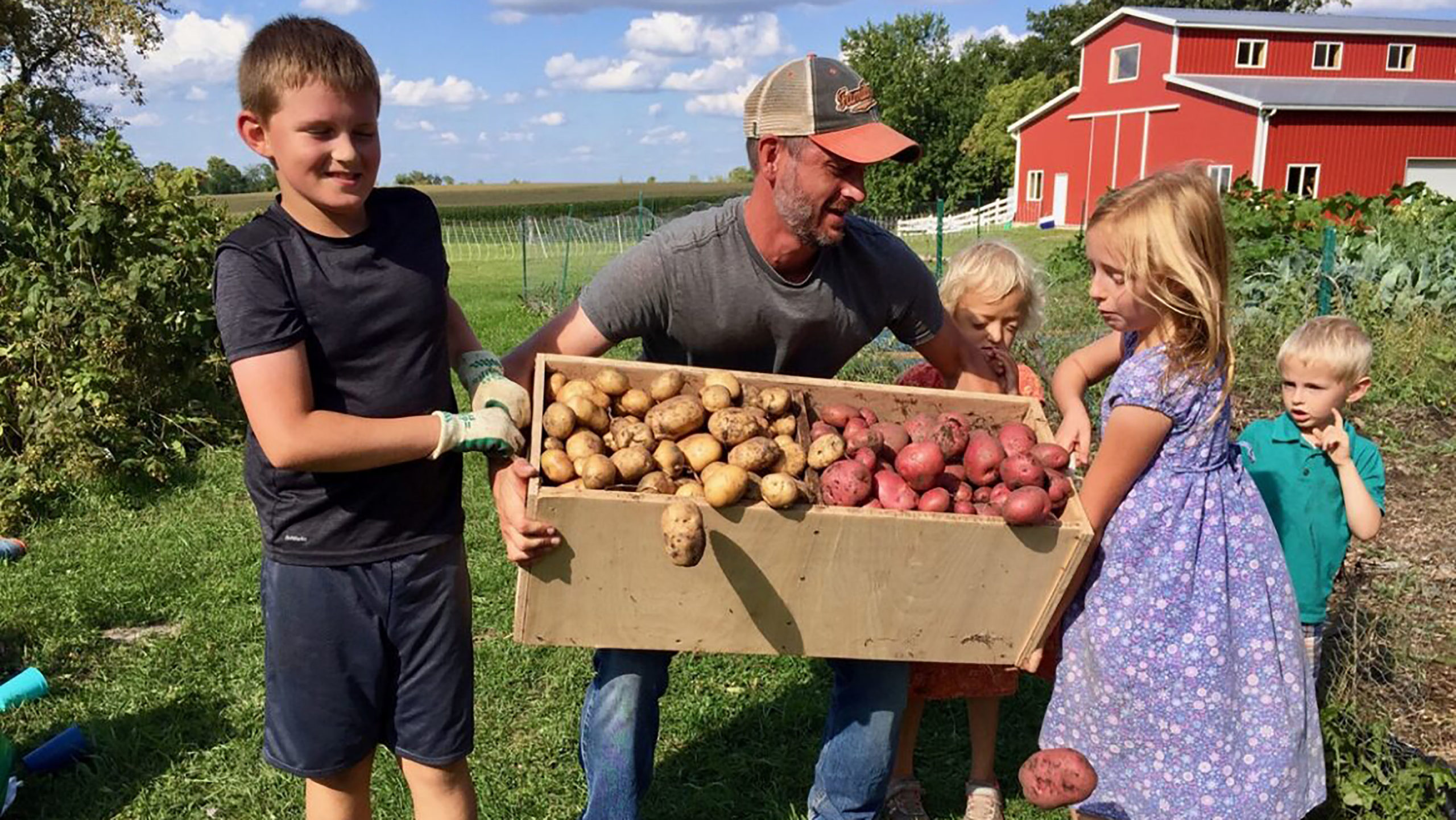Shifting gears and changing the course of life can be daunting, but for one Minnesota farmer the change became a blessing to his family, as well as spawning a larger mission, ministry and book.
In a recent episode of the TAB Media podcast “Amplify: Conversations about Life and Faith,” host Maggie Evans spoke with author, computer programmer and farmer Rory Groves about his experience with what he calls “family-centered economies.”
Evans asked Groves what motivated him to look away from his full-time job and move toward a different lifestyle, eventually getting into farming.
“I was trained as a computer scientist,” he said. “I basically grew up around technology and loved it, and I had always wanted to be in that field. I spent the first 20 years of my career as a computer programmer and building software.”
But Groves said he realized the things he was creating would become obsolete within a few years, and if he didn’t continue to train as a professional, he’d be obsolete as well.
“I wasn’t really building anything that I could pass onto my children,” he explained. “Any skills that I had learned would certainly be obsolete by the time they could use them in the world.
“I didn’t want to just pursue a paycheck. I wanted to find if there was a profession I could work in that would involve my family.”
Durable research
In his research, Groves came across the concept of family-centered economy, which he described as fulfilling and long-lasting. It also led to his book, “Durable Trades: Family-Centered Economies That Have Stood the Test of Time.”
Groves said he found a lot of options available to families who seek this kind of lifestyle.
“There are many options for families to work together. Not only that. It’s really the best way to pass on one’s faith, values, culture and to build lasting relationships with your family.
“There are many viable family economies that … have been around for centuries,” Groves said. “A lot of times families engaged in multiple vocations. They had maybe three or four or five different revenue streams that made up the family economy.”
But Groves made it clear he hasn’t got it all figured out, and he and his family are still experimenting.
“I’m still a computer consultant part-time but we’re also in the process of ramping up a lot of events on our farm that center around this whole concept of building family economies, homesteading skills, getting people introduced to the concepts of farm life.”
The learning farm
Groves, his wife Becca and their children live on what they call a “learning farm” in southern Minnesota. Among many other things, they raise livestock and food for their family.
“We love sharing everything we’re learning out here,” he said. “There’s so much richness in this life.”
Groves noted the changes they’ve made along the way have been small.
“I didn’t just quit my job and move out to a farm somewhere and see what happened. It was definitely small steps,” he explained.
“This concept of families working together is … pretty foreign in our modern day,” Groves acknowledged. “Ever since the Industrial Revolution, we have been continuing to separate out instead of working together. That’s a relatively new phenomenon in history. [G]oing back thousands of years, that was unthinkable. The family had to work together in order to survive.”
‘Normal and sustainable’
Groves believes his concept is a normal and sustainable model God intended for the family.
“Go back to Genesis. Adam and Eve, Cain and Abel. God created them in the garden to share a common vision, to work the land together,” Groves explained. “The mind-shift comes when you can see how God uniquely put your family together to accomplish something no other family on Earth could do, and to begin thinking as one unit.”
Passing on his faith and a strong work ethic to his kids is a priority for Groves.
“Trying to go through 16 years of education and come out and be equipped to endure in a working environment … that’s a very hard thing to pass on,” he said. “You have to nurture a work ethic from a really young age. On the farm, I get to teach my kids about what God is doing in the garden. We get to talk about things going on in the world. There’s so many ways in which we get to pass on our faith through the context of work.”
Of his book Groves said, “I started looking at all the possible historic trades and I decided to narrow it on the most recent time period … that would still be relevant today,” in the process identifying 61 durable trades that survived the Industrial Revolution.
Groves said what he intended was to benefit his family, but he realized how much it could benefit others.
“What are some ways we can pick and choose from different types of trades out there [that] we can do together?”
For more information visit www.thegrovestead.com. To hear the entire interview visit www.thealabamabaptist.org/explore/podcasts.






Share with others: